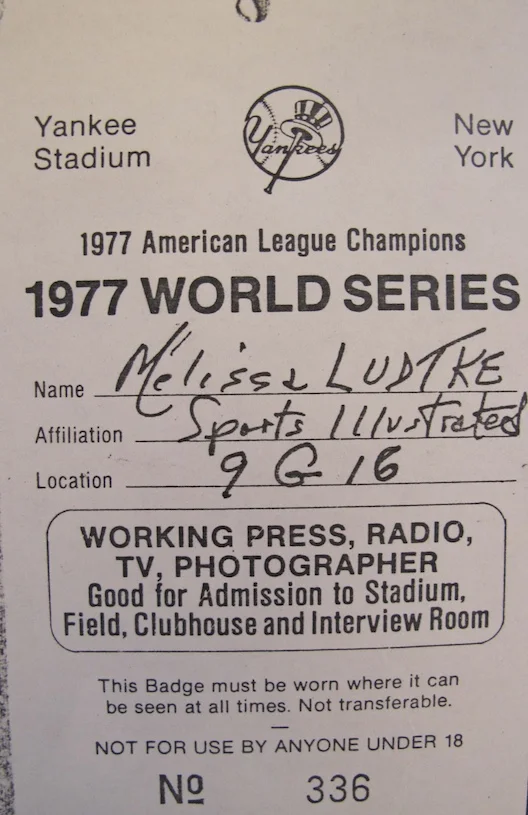Melissa Ludtke, Journalist and Author
In her award-winning journalism career, Melissa Ludtke reported at Sports Illustrated, was a correspondent at Time, and the editor of Nieman Reports at Harvard University’s Nieman Foundation for Journalism. Her lifelong engagement with issues revolving around girls and women’s lives led her to write two books, "On Our Own: Unmarried Motherhood in America," and "Touching Home in China: in search of missing girlhoods." In "Locker Room Talk: A Woman's Struggle to Get Inside," her upcoming memoir, Melissa revisits her federal lawsuit, Ludtke v. Kuhn, which in 1978 secured equal access for women sports reporters. This meant women could interview players, coaches and the manager in the locker room, as male reporters had done for decades. She is a graduate of Wellesley College and lives in Cambridge, MA with her college-aged daughter, Maya.
Melissa advanced women's equality when she was a baseball reporter for Sports Illustrated. After Commissioner Bowie Kuhn denied her access to interview ballplayers in team locker rooms, Time Inc., the company that owned Sports Illustrated, filed a federal lawsuit, Ludtke v. Kuhn, in which Melissa was its plaintiff. The lawsuit claimed that Major League Baseball’s media policy separating men and women reporters in performing their jobs resulted in unequal treatment and gender discrimination, since women were put at a disadvantage. Judge Constance Baker Motley's decision rested on the Constitution's Fourteenth Amendment, and her September 1978 ruling secured equal access for women reporters.
For nearly a year in the late 1970s, Melissa's successful legal case captured international attention with memorable newspaper headlines such as “Babes in Boyland,” “‘Battle of the Sexes’ Invades Sports’ Locker Rooms,” “How Far Does Equality Go?,” and “Grab your towel, Mean Joe Green.” The American Journalism Review, writing years later about her case, declared, “No single action resonated with female journalists more than the 1978 federal court ruling granting equal access for women covering sports.” The1977 press pass, below, authorized Melissa's clubhouse/locker room access, but Major League Baseball Commissioner Bowie Kuhn banned her from the clubhouse based solely on her gender. She archived her papers relating to her groundbreaking suit at Radcliffe Institute's Schlesinger Library, as well as interviews she did for her book "On Our Own: Unmarried Motherhood in America." A comprehensive oral history of Melissa's life and her legal case is preserved as part of the Washington Press Club Foundation’s Women in Journalism oral history project and in the Herstory project through JAWS.
Denied Access
Melissa's press credential, left, is similar to the badges that accredited journalists at the 1977 World Series received. It gave them access to areas where interviews take place, including the clubhouse/locker room. One of her 1977 badges is on permanent display at the Newseum in Washington, D.C. and a 1978 World Series press pass belonging to Melissa is in the museum at the Baseball Hall of Fame in Cooperstown, New York.

